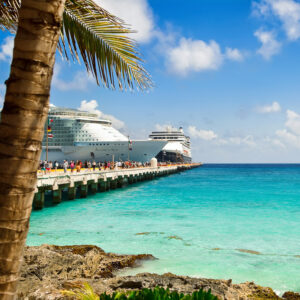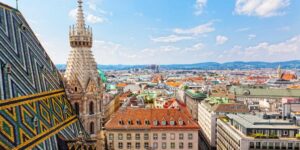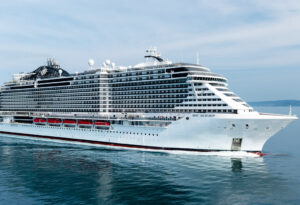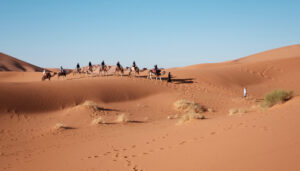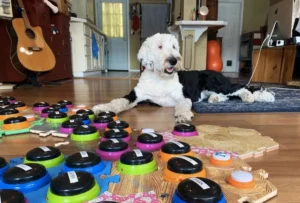THE DESERT CALLED: WE ANSWERED
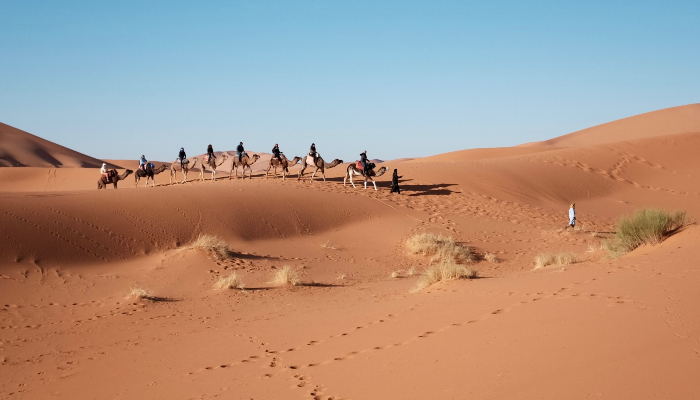
Finding sun is the key to salvation if you’re from Seattle, so we flew to Scottsdale and rented a car this winter.
We were in the right place in the warm Scottsdale sun when we stumbled upon the Parada del Sol. The annual parade featured clog dancers, the flinging, beribboned skirts of costumed ethnic groups and floats that implored onlookers to save the wild horses.
Scottsdale’s McDowell Mountains are close enough that they weave into daily life. Camelback Mountain hikes, with the lanky, green saguaro cacti raising their arms heavenward, are right out the back door.
It was around 40 degrees most mornings and warmed up to the high 60s in the afternoons. Perfect touring weather.
BLACK CANYON HIGHWAY
Prickly pear cactus peppered the Black Canyon Highway as we drove from Scottsdale to Sedona. Soon the canyon revealed the towering mesas of fiery red rocks with striations of white limestone and grey granite that resembled Greek temples.
The sun embraced them as they rose in the East. When the sun sloped into the West, a crimson skyline floated in. There is a reason people in Sedona get red rock fever.
Watch dramatic sunsets at Airport Mesa, have a spiritual experience by touring the energy fields (vortexes that Sedona is famous for) or take an exhilarating hike to Antelope Canyon, a slot canyon where beams of sunlight radiate through slim crevices.
We took dusty roads to Native American ruins at Palaki and Honanki where the unrestored ruins reveal rock dwellings and petroglyphs. A short trip to Camp Verde Museum displays relics from these sites.
SEDONA TO GRAND CANYON
As we drove from Sedona to Grand Canyon, junipers clustered on the hillsides of the lush canyons and white, wispy limbs of cypress trees reached skyward like ghostly apparitions from the valley floors. The Trail of Time on Grand Canyon’s south rim features rocks dating back millions of years.
Mesas stack like wedding cakes and condors swoop overhead as the Colorado River gushes over a mile down. Some good spots to see the canyon’s vast panorama are Desert View and Lipan Point near the East entrance.
Heading south from Sedona to Tucson, we stopped at Tuzigoot, a vast restored Native American village, and the town of Jerome, deserted in 1953 when the adjacent copper mine closed.
In the 1980s artists recreated Jerome, and now the Grand Hotel looms over the restored saloons and former brothels that cling to the hillside. Old King Mine is open for tours on most days.
EXPLORING TUSCON
We ventured to Tucson’s Mission San Xavier, the surviving Jesuit mission in Arizona, and found the Pima Air and Space Museum an absorbing stop with its historic aircraft from a Wright Flyer to a 787 Dreamliner.
Biosphere 2 is an intriguing site that reveals how scientists sequestered in this immense glassed dome from 1991-93 to simulate existing in outer space. A tour through their original living spaces makes their experience come alive.
South of Tucson at Titan Missile Site, visitors undergo a simulated missile launch. We fell into the right place again when we wandered further south to Tubac for its annual Arts Festival, lively with food, dancing, horse-driven carriages and art.
We were thrilled when we caught sight of Joshua Tree, the miraculous non-mirage in the middle of the desert. Joshua Tree has etched itself in my memory as the most remarkable area we reached because it is full of life, wonderous desert life. Desert thorn, yucca, bur sage and creosote bush blanketed the ground, and Joshua Trees flourished among them.
JOSHUA TREE ART
We delighted in Joshua Tree’s evening Art Walk featuring funky shops like Beauty Bubble Salon. A wander down the alley revealed Art Queen Gallery and the Crochet Museum.
These atypical shops prepared us for the curious Noah Purifoy Desert Outdoor Museum outside Joshua Tree in California. It is a plunge into the creativity that can emerge from discarded items—sculptures using bike parts, a dwellings from amassed tools, toilet tanks stacked miles high.
It was 72 degrees in the high desert, perfect for climbers who ascended the sandy brown rocks that bubbled into cliffs, perfect for young artists who set up their easels, and even more perfect for those who had been lost in the desert.
Our next stop was Palm Springs. Hikes and a tour of Sunnylands (the former Annenberg Estate) were highlights that made us realize why people winter in the appealing climate (82 most of the time we were there).
A walk through Palm Desert Civic Center Park revealed sculptures, waterfalls, an amphitheater and a gripping holocaust exhibition. Go to Shields for date shakes–a fundamental taste of Palm Springs.
We tasted wine in the Santa Ynez wine country, and graceful rows of grapes led us to Los Olivos and then to Solvang. Its kringle and aebleskivers pastries earn it the accolade, “Danish capital of America.”
The fresh scent of eucalyptus trees swept in on a gentle breeze as we entered Santa Barbara. There we enjoyed the vast expanse of beaches and the walking tour of historic adobes.
STOPPING IN OJAI
Stopping at Ojai broke up the drive to Los Angeles. Ojai is a breath of fresh air with its boutique hotels, hiking, and farmers’ market. In LA we experienced the thrills and chills of Universal Studios and took a drive through palatial Beverly Hills. Adjacent to LA is San Pedro where we toured the USS Iowa.
Heading south, we stopped in Palos Verdes at the Wayfarer Chapel, the glass facility where one might want to stage a wedding and at Abalone Cove if one prefers surfing. Watch for whales at Pt. Vincente Interpretive Center and then wander the grounds at Terranea Resort with its spectacular views of the Pacific.
Next was San Diego to enjoy Balboa Park with its 17 museums and then to Old Town, San Diego’s restored state park featuring a blacksmith shop and quilt store. We popped across the bridge to Hotel del Coronado before flying home from San Diego.
We were in the right place for many serendipitous events. All it took was a good car, a patient driver and functional Mapquest.
